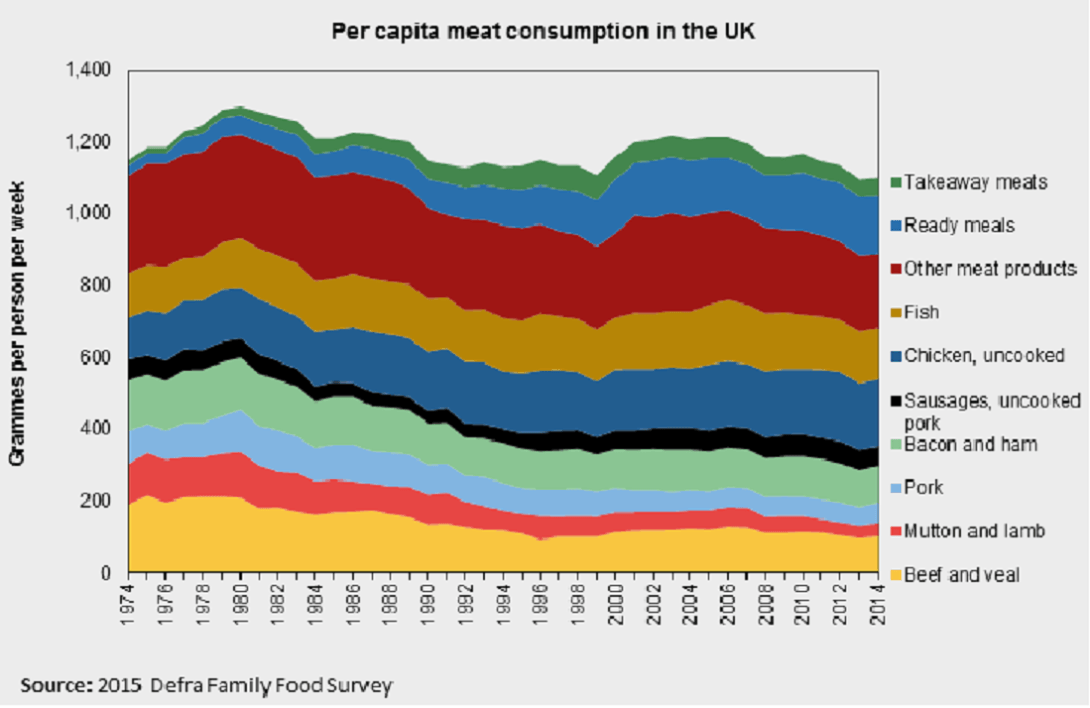Change your diet, change the world?
A change in your diet in 2017 for health can also benefit animals and the planet
05 January 2017
It’s January. Many of us are thinking about food more than usual. New Year’s resolutions tend to focus on the personal effects of changing our diets, but it’s also a good time to consider the big issues beyond our own plates.
Take the example of eating less meat. We know that there are significant issues with animal rights and animal welfare. We also know that eating less meat can have one of the most significant environmental impacts of any personal change.
Reducing demand
The important change taking place is less the eating and more the purchasing. As environmental harm occurs during the production of meat, not the consumption of meat, to reduce this harm we need to affect the decision to produce. Fundamental to our understanding of economic systems is that meat producers are responding to demand.
Some argue that when an individual chooses not to eat meat, the product they have avoided will simply be consumed by someone else anyway. Strictly speaking, this may not be the case due to unsold products, but it also begs the question how products ever change in popularity.
Instead, we would expect that a fall in demand for meat would lead to a reduction in the supply of meat. Even if this fall in demand reduces meat prices, this price adjustment will not cancel out the change in demand completely. Facing an oversupply of meat and lower prices, some farmers are likely to switch from meat production to growing crops or other activities.
The effects
In isolation, it might feel like the change in one person’s diet is extremely small, but even a marginal change can result in a supermarket not ordering that extra box of hamburger patties or a wholesaler delaying their farm order by an extra day. Sales do matter at the margin – many products are priced to the penny, after all.
Attempts to estimate the marginal impact of a change from a meat-eating to a vegetarian diet suggest that for one person a vegetarian diet in America results in 37 – 165 fewer animals being killed every year and 24 – 110 animals a year from a vegetarian diet in the UK.
Small changes are happening, but wider change is needed
On the whole, food consumption per person has been gradually falling over the past decade in many developed countries and meat consumption is no exception. A larger change is in the type of meat being consumed, with carcase meat being swapped for ready-made meals and takeaways, according to 40 years of Defra’s Family Food Survey.

The same dataset shows a 6000% increase in the amount of soya products and other alternative sources of protein consumed from 1974 – 2014, and surveys have indicated a rising interest in vegetarianism.
However the relative share of meat in British diets has still not changed significantly as vegans, vegetarians and other categories of low or no meat consumption remain a small percentage of the population.
If we add to this the general increase in meat consumption (and population) projected across most of the world an extremely troubling picture emerges. A recent study illustrated that on current trends greenhouse gas emissions from food production alone will exceed a 2°C climate budget. We need to make urgent and lasting change.
Our diets can have a huge impact on the environment. Both the wider food system and our collective eating habits need to change if we’re to make a lasting difference. That process can begin today, with a resolution to make a reduction in your meat consumption.
Topics Environment Fisheries & farming






